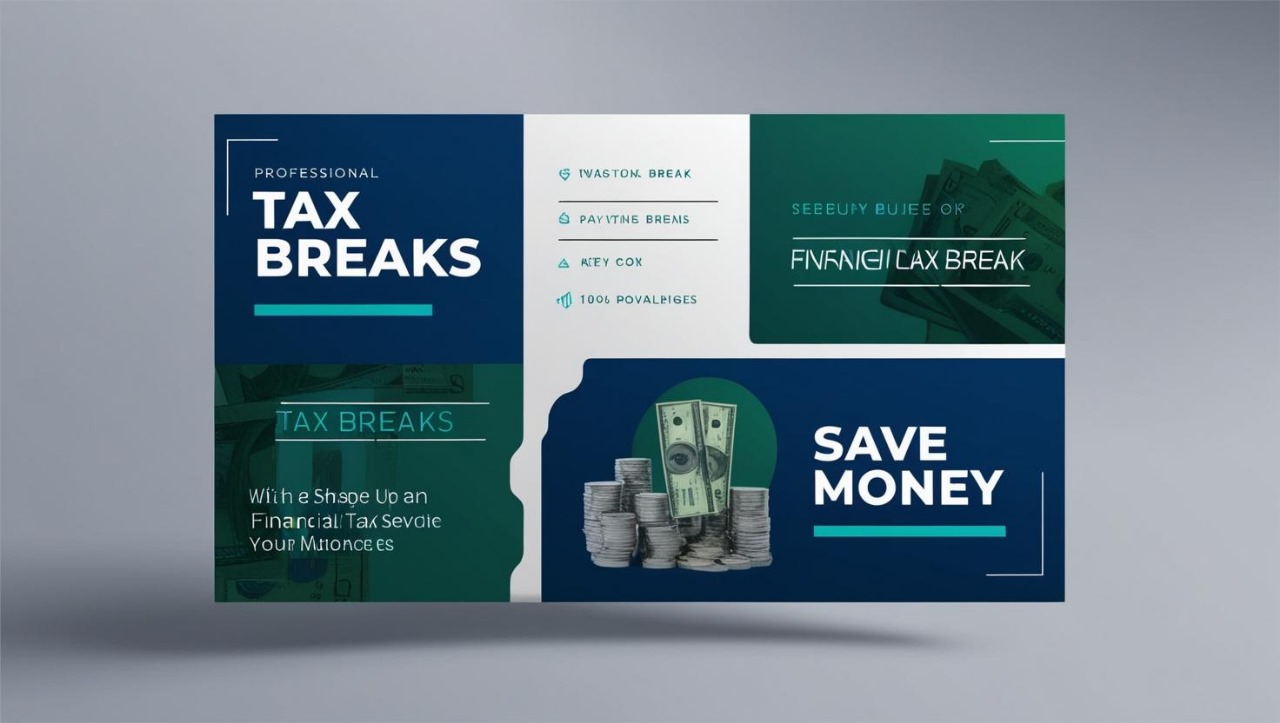Tax breaks help you lower the money you need to pay in taxes. These are legal ways the government allows to support some activities or to make life easier for people and businesses. Knowing about tax breaks can save money and make your life simpler.
What Are Tax Breaks?
Tax breaks are ways to reduce the taxes you must pay. They are made to support goals like owning a home, getting an education, or growing a business. The government gives tax breaks to encourage good actions, like saving for retirement or using green energy. Tax breaks can be deductions, credits, or exemptions.
Types of Tax Breaks
- Tax Deductions: Tax deductions lower the amount of your income that is taxed. For example, if you earn $50,000 in a year and have a $5,000 deduction, you only pay taxes on $45,000. Common deductions are:
- Charitable Donations: Money given to approved charities can lower your taxable income.
- Medical Expenses: You might be able to deduct some medical costs you paid yourself.
- Home Mortgage Interest: Homeowners can deduct the interest paid on their home loans.
- Tax Credits
Tax credits reduce the tax you owe directly. They are better than deductions because they cut the tax amount dollar-for-dollar. For example, if you owe $2,000 in taxes and have a $500 tax credit, you only pay $1,500. Common credits are:
- Child Tax Credit: Families with children can get a tax credit for each child.
- Education Credits: Students or parents can claim credits for tuition or school costs.
- Energy Efficiency Credits: People who use solar panels or energy-saving appliances might get a credit.
- Tax Exemptions: Tax exemptions exclude some income or groups from taxes. Examples include:
- Non-Profit Organizations: Charities and religious groups usually do not pay taxes.
- Dependents: In the past, people could claim tax exemptions for their dependents, though some rules have changed.
How Tax Breaks Work
Tax breaks happen at different levels:
- Federal Level: The national government offers tax breaks for savings, education, and owning a home.
- State Level: States offer other breaks, like exemptions on property taxes or specific credits.
- Local Level: Local governments might offer tax breaks to attract businesses or help homeowners.
For example, in my city, first-time homebuyers can get a property tax exemption for two years. This made buying my first home easier and more affordable.
Who Can Benefit from Tax Breaks?
Many groups of people can use tax breaks, including:
- Homeowners: Mortgage interest and property tax deductions are common benefits.
- Parents: Tax credits for childcare and education help families save money.
- Students: Tuition credits and deductions for student loan interest reduce education costs.
- Business Owners: Deductions for office supplies, employee pay, and tools lower business expenses.
- Retirees: Savings in accounts like IRAs or 401(k)s can qualify for tax breaks.
Common Tax Breaks for Individuals
- Standard Deduction
The standard deduction is a fixed amount every taxpayer can subtract from their income. The amount depends on how you file (single, married, or head of household). It is an easy way to lower taxable income without extra paperwork.
- Health Savings Accounts (HSAs)
People with high-deductible health insurance plans can save money in an HSA. Money put in the account is tax-deductible, and taking it out for medical expenses is tax-free.
- Earned Income Tax Credit (EITC)
The EITC helps workers with low or moderate incomes. It reduces the taxes owed and might even give a refund based on income and family size.
Tax Breaks for Businesses
- Startup Costs Deduction
New businesses can deduct some early costs like research, advertising, or legal help. This makes it easier to start a business by reducing expenses.
- Depreciation of Assets
Businesses can deduct part of the cost of tools or property over time. For example, a company can deduct some of the cost of a car or machine each year.
- Research and Development (R&D) Credit
Businesses that create new ideas or products can get credits for research expenses. This tax break encourages innovation and growth.
Challenges in Using Tax Breaks
Understanding and claiming tax breaks can be hard. Some problems include:
- Complex Rules: Tax laws can be confusing. Some tax breaks have strict requirements like income limits or special paperwork.
- Changing Laws: Tax rules often change, making it hard to know what breaks are available.
- Eligibility Confusion: Some people miss tax breaks because they do not know they qualify.
For example, I did not know I could deduct home office expenses when I started freelancing. After learning about it, I saved money the next year by keeping good records of work-related costs.
Tips for Maximizing Tax Breaks
- Keep Good Records: Save receipts, bills, and documents for deductions and credits.
- Consult a Professional: A tax expert can find breaks you qualify for and save you money.
- Use Tax Software: Programs like TurboTax or H&R Block make it easier to find and claim tax breaks.
- Stay Updated: Follow tax law changes to avoid missing new opportunities.
How Tax Breaks Impact Society
Tax breaks influence actions and industries. Examples include:
- Encouraging Green Energy: Energy credits support solar panels and electric cars, helping the environment.
- Supporting Education: Tuition credits make college more affordable for many.
- Boosting Homeownership: Mortgage interest deductions help more people afford homes.
Tax breaks not only help individuals save money but also support economic growth and positive social changes.
